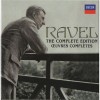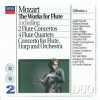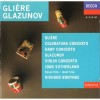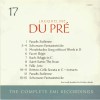| Voice/Instrument: | Harpsihord |
Biography
The Welsh harpist and teacher, Osian (Gwynn) Ellis, studied with Gwendolen Mason at the Royal Academy of Music in London.
From 1961 Osian Ellis was principal harpist for the London Symphony Orchestra. He was a creative player during his London Symphony Orchestra days, and was even known to toss in his own solos while performing with the orchestra. He acquired a fine reputation as a concert artist via engagements as a soloist with foremost orchestras and as recitalist around the globe. He has established a repertoire that stretches back to medieval British and Spanish music as well as the traditional harp music of Wales.
When the Melos Ensemble was formed in London in the late 1960's, Osian Ellis was a natural choice to become harpist. The ensemble consisted of about a dozen musicians and was dedicated to performing the often-neglected repertoire for extended chamber ensemble, in the case of the harp leading to the impressionist masterpieces of Ravel and Debussy. Ellis has been a constant champion of his instrument, conducting multi-harp workshops and leading the Osian Ellis Harp Ensemble. In 1999 he conducted a 12-harp ensemble at a special concert for the Florida International Festival, where he was photographed practising harp on the beach. He has also shared poetry and music recitals with Dame Peggy Ashcroft, Paul Robeson, Richard Burton, Cecil Day-Lewis, etc.
Many new works have been written for Osian Ellis, including concertos by Alun Hoddinott (for the Cheltenham Festival in 1957), William Mathias (for the Llandaff Festival of 1970), Jorgen Jersild (1972), William Alwyn (1979), and Robin Holloway (1985), with solo and chamber music by Benjamin Britten, Malcolm Arnold, Gian Carlo Menotti (1977) and William Schuman (1978). Ellis worked closely with B. Britten from 1959 until the latter’s death in 1976, and appeared in many first performances and recordings of his works. B. Britten wrote the harp part in several of his major pieces with Ellis in mind, particularly A Midsummer Night's Dream, the War Requiem and the Church Parables. B. Britten's Harp Suite in C (Op. 83) was composed in 1969 after Ellis asked the composer for a solo piece, and was premiered during that year's Aldeburgh Festival. When B. Britten could no longer play the piano, following an unsuccessful heart operation in 1973, Ellis joined tenor Peter Pears to give recitals in Europe and America from 1973 to 1980. Ellis prompted eager composers to submit songs to the duo. That included B. Britten, who came up with Canticle V (1974), The Death of St Narcissus and The Birthday Hansel during this period, the latter piece a special request from the Queen. After this Ellis began to be referred to as "the queen's harpist." Ellis and B. Britten also collaborated closely on the 1976 Eight Folk Song Arrangements, with Ellis creating virtuoso harp accompaniment as well as English lyrics for Welsh text. Ellis frequently performs excerpts from the harp compositions by Danish composer Jorgen Jersild, many of which are dedicated to Ellis.
Osian Ellis' own compositions have drawn on his Welsh heritage, including settings of Welsh folksongs for tenor and harp and settings of medieval Welsh strict metre poems. Diversions for two harps includes a cerdd dant setting of a Dylan Thomas poem. His short book The History of the Harp in Wales was published by the University of Wales Press in 1991.
Osian Ellis' numerous recordings of harp music, concertos, chamber music, and songs with harp have received many awards. His 1959 recording of Georg Frideric Handel's harp concertos (with Thurston Dart) won the Grand Prix du Disque. He has also participated in numerous radio and television broadcasts.
Osian Ellis has also had a superb academic career. From 1959 to 1989 he was also professor of harp at the Royal Academy of Music, succeeding his former teacher Gwendolen Mason. In 1970 he became Honorary Doctor of Music and in 2000 was made an Honorary Fellow by the University of Wales. He is also the Honorary President of the Wales International Harp Festival. He has been the subject of several full-length documentaries produced by British and Welsh television, the latter filmed when he was just beginning his career. In 1971 he was made Commander of the Order of the British Empire (CBE).









